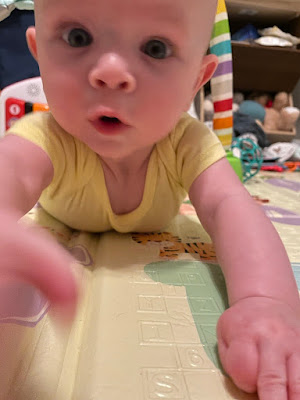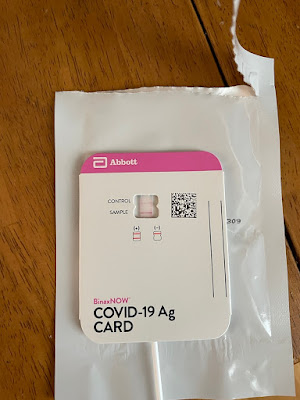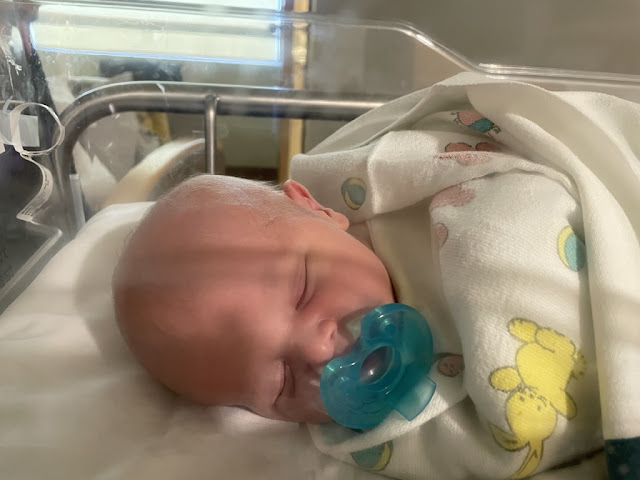"Overall, Swine Flu and Legionnaires' Disease boiled down to the same set of troubling perceptions for the American public, and, to a lesser extent, the Canadian, Mexican, Australian, New Zealand, and European publics: something new and very scary was coming; nobody was sure what it was, but the experts were certain it was dangerous; the federal government seemed quite distressed about the matters, but the experts and authorities didn't seem to agree as to what, if anything, should be done to protect the public; and it was all costing taxpayers a pretty penny. In both cases, public apprehension would eventually yield to impatience and allegations of incompetence, even scandal."
Dates read: June 10-21, 2019
Rating: 7/10
I just want to kick off this review by noting that I read this book well before "covid" was a string of letters I'd ever think to put together. I considered going back and re-writing this based on what we know now, but I thought it was more genuine to preserve my reaction to the book as of the time I read it. Anyways! Of all the times I've ever been sick, I don't know that anything has been as unpleasant as the times I've had the simple flu. The soaring fevers, the aches, the blocked up sinuses that make sleep so difficult...it's several days of feeling just utterly wretched, followed by several more where you just feel weak like a kitten. But of course, I've never been really sick. I've had the odd bout with pneumonia, which I also do not recommend, but generally I've been in good health. I do appreciate living in the world of antibiotics.
Once upon a time, a simple strep throat or upper respiratory infection could literally kill you. And it wasn't even that long ago, really! Penicillin was discovered less than 100 years ago. What it might be like to return to a world in which there were not effective antibiotics is one of the many topics covered in Laurie Garrett's The Coming Plague. In this large volume, Garrett investigates how the world continues to be vulnerable to infection, the consequences we might face for the widespread overuse of antibiotics in the modern world, and the way in which our own actions continue to bring us into contact with new agents of disease. She takes a broad look at trends in epidemiology: the emergence of Ebola, the discovery of Legionnaire's Disease, toxic shock syndrome, and of course, the spread of AIDS. And she doesn't shy away from an examination of the underlying systems that help perpetuate the spread of infection, particularly among the poor.
I found the most compelling portion of the book to be its examination of the AIDS crisis. I came of age in a world where AIDS was just a fact, and this is the first time I really got a sense of the fear that the beginning of the epidemic created. Hemophiliacs and gay men just...dying, in large and inexplicable numbers. The way that no one knew what was happening, or how this new disease spread, and (heartbreaking) the difficulty of getting government systems, controlled by conservative Republicans, to care about an illness that was affecting a group of people that they were just not interested in helping. There's an urgency there which really comes across strongly and made it hard to put down.
Garrett is a journalist by trade, and it shows in the writing of the book. The Coming Plague is strongest when she's focusing less on the recitation of facts (like she does when she talks about the process through which some microbes become antibiotic resistant, which feels like struggling through a science class) than on telling a story about people. There are some dynamic personalities, like Dr. Joe McCormick, that show up again and again in the fight against emerging infections, and this work shines when she lets them and the patients they treat take center stage. For the most part, she does keep the focus on people and the systems in which they operate in a way that keeps the book moving along, but it does occasionally bog down when she tries to get too heavily scientific, and in a book this long, it's a tricky bog to escape from.
I found myself wondering as I was reading this book who exactly Garrett had in mind as the target audience. It's got over 600 pages of text before endnotes, and the print on those pages is not large. It seems too long, and too detailed, to get wide traction in the general population of readers. But it's not scholarly or academic in nature, either. I'm a reader who is prepared to do some intellectual work, especially when reading nonfiction, and by the time I had only 150 pages left I was ready to be done even though the material I was reading was just as good as what had come before it. If she'd cut out some of the more science-oriented material, I think it would have kept the book moving better and more accessible to readers. As is, this is good, particularly if you have any interest in epidemiology, but feel free to skim through the more dense portions if they're not catching your interest.
One year ago, I was reading: The Secret Life of Bees
Two years ago, I was reading: Whores of the Devil
Three years ago, I was reading: The Mind's Eye
Four years ago, I was reading: Thank You For Smoking
Five years ago, I was reading: Orange is the New Black
Six years ago, I was reading: Creative Mythology


































